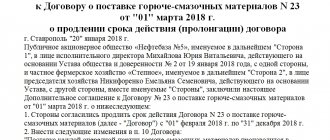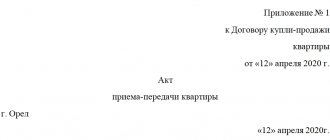The Supreme Court indicated when a party to a lawsuit is not considered notified of it
The Supreme Court issued Determination No. 305-ES19-14303, in which it indicated that the return of a court notice without a postal office mark about the reasons for the return does not confirm the notification of the party about the start of legal proceedings.
In October 2021, JSC Administrative Directorate of the Ministry of Culture of Russia filed a claim with the Moscow Arbitration Court against JSC Historical and Architectural Complex Nikolskoye-Uryupino for the recovery of more than 223 million rubles. debts under a land lease agreement. Already on December 24, 2021, the claim was satisfied, while representatives of the defendant did not participate in the meeting.
On February 11, 2021, the company appealed to the Ninth Arbitration Court of Appeal with an appeal and a petition to restore the missed deadline for filing it, which expired on January 25. The complaint, in particular, noted that the defendant was not notified of the lawsuit.
The Court of Appeal, guided by Art. 54, 165.1 Civil Code, parts 4 and 6 of Art. 121, part 1 art. 259 of the Arbitration Procedure Code, clarifications of paragraph 17 of the Resolution of the Plenum of the Supreme Arbitration Court of May 28, 2009 No. 36 “On the application of the Arbitration Procedural Code of the Russian Federation when considering cases in the Arbitration Court of Appeal”, terminated the proceedings on the complaint due to the refusal to satisfy the request for restoration of the missed deadline for its submission. The appeal noted that the full reasoned text of the decision of the trial court was prepared on December 24, 2021 and posted on the information portal “Card Index of Arbitration Cases” on December 25, 2021. “In accordance with Part 6 of Art. 121 of the Arbitration Procedure Code of the Russian Federation, the applicant was independently obliged to take measures to obtain information about the judicial act,” the court indicated.
The appellate court also noted that, according to the case materials, the defendant was notified of the acceptance of the statement of claim for proceedings and of the appointment of the case for trial, since the judicial notice was sent in accordance with Part 4 of Art. 121 of the APC at the location of the legal entity. Thus, the defendant bears the risk of adverse consequences as a result of failure to take measures to obtain information about the progress of the case. The Arbitration Court of the Moscow District left the determination of the appeal unchanged.
Disagreeing with the ruling of the cassation court, the company appealed to the Supreme Court.
Having studied the materials of case No. A40-238644/2018, the Judicial Collegium for Economic Disputes of the Armed Forces of the Russian Federation noted that, in accordance with paragraph. 2 hours 1 tbsp. 121 of the Arbitration Procedure Code, information on the acceptance of a statement of claim or statement for proceedings, on the time and place of the court hearing is posted by the arbitration court on the official website of the arbitration court on the Internet no later than 15 days before the start of the court hearing or the commission of a separate procedural action, unless otherwise provided by this Code . Documents confirming that the arbitration court posted the specified information on the official website of the arbitration court on the Internet, including the date of its publication, are attached to the case materials.
Proper notice to the defendant in civil proceedings
The Civil Procedure Code of the Russian Federation (hereinafter referred to as the Civil Procedure Code of the Russian Federation) provides for several forms of proper notification of persons participating in the case:
- by registered mail with acknowledgment of delivery;
- subpoena with acknowledgment of delivery;
- by telephone message or telegram, by fax or using other means of communication and delivery that ensure the recording of a judicial notice or summons and its delivery to the addressee (Part 1 of Article 113 of the Code of Civil Procedure of the Russian Federation).
In paragraph 2 of the Resolution of the Plenum of the Supreme Court of the Russian Federation dated June 26, 2008 N 13 “On the application of the norms of the Civil Procedure Code of the Russian Federation when considering and resolving cases in the court of first instance” it is stated that in the preparatory part of the trial it is necessary to establish whether the persons who failed to appear have been notified of time and place of the court hearing in compliance with the requirements of the law on the need to serve copies of the statement of claim to the defendant and third parties and notices to all persons participating in the case within a period sufficient for a timely appearance in court and preparation for the case (Articles 113, 114 of the Code of Civil Procedure of the Russian Federation) .
This period must be determined in each case, taking into account the place of residence of the persons participating in the case, their knowledge of the circumstances of the case, the ability to prepare for trial, as well as the complexity of the case.
It is necessary to take into account that notification of participants in legal proceedings is allowed, including via SMS message, if they agree to be notified in this way and if the fact of sending and delivery of the SMS notification to the addressee is recorded. The fact of consent to receive SMS notification is confirmed by a receipt, which, along with data about the participant in the proceedings and his consent to notification in this way, indicates the mobile phone number to which it is sent. All this equally applies to the defendant’s notice.
However, it should be noted that regardless of which method of notifying participants in legal proceedings is chosen by the court, any means of communication or delivery used must ensure reliable recording of the transmitted message and the fact of its receipt by the addressee (clause 5 of the Review of Judicial Practice of the Supreme Court of the Russian Federation No. 4 (2015) , approved by the Presidium of the Supreme Court of the Russian Federation on December 23, 2015). Failure of the courts to comply with this requirement is a significant violation of the rules of procedural law.
For the defendant, as well as for other participants in civil proceedings, judicial notice is mandatory. A defendant who refuses to accept a subpoena or other judicial notice is considered to have been notified of the time and place of the trial or the commission of a separate procedural action (Part 2 of Article 117 of the Code of Civil Procedure of the Russian Federation).
If the place of residence of the defendant is unknown, the court begins to consider the case after the court receives information about this from the last known place of residence of the defendant (Article 119 of the Code of Civil Procedure of the Russian Federation).
This entails the obligation of the court to issue a ruling on the search for the defendant, if his place of stay is unknown, for claims made in defense of the interests of the Russian Federation, constituent entities of the Russian Federation, municipalities, as well as for claims for the collection of alimony, compensation for harm caused by injury, other damage to health or as a result of the death of the breadwinner (part 1 of article 120 of the Code of Civil Procedure of the Russian Federation).
Serving a subpoena
As a rule, the court notifies the plaintiff or defendant about certain events or procedural actions. However, he may oblige the interested party to do so. To do this, she is given a summons with a counterfoil against her signature.
The judge's assistant or secretary can tell you how to serve a summons correctly to a participant in the process. If the subpoena is addressed to an enterprise, it can be served through the reception or office to an authorized employee. In this case, he must put the date of receipt and his signature on the counterfoil.
If the subpoena is addressed to an individual, then to serve it you can come to his home or send it by registered mail with a list of the contents. If a person is not at home, other adult family members have the right to receive a summons for him.
Often in court hearings, the defendant’s case is led by his representative. Therefore, it is permissible to serve the summons on him.
Mail errors when sending notifications
The post office did not serve the defendant with a secondary notice
The post office is obliged to deliver a registered letter and hand it over to the addressee personally against signature. To do this, the postman leaves a notice in the subscriber's mailbox or in the mailbox, in which the addressee is notified of the need to receive the letter (clauses 3.2, 3.3 of the Russian Post order dated December 5, 2014 No. 423-p).
If the addressee does not appear for the letter within three working days after the primary notice was delivered to him, the postman is obliged to send him a secondary notice (clause 3.4 of Russian Post Order No. 423-p).
The most common mail mistake is not delivering a secondary notice to the addressee. In this case, the court decision can be reversed.
What to do? Check if there is information on the Russian Post website about the secondary notice, and on the back of the postal item there is a stamp on the date and time the secondary notice was issued. If there is no such information, indicate this in the complaint. If there is such information, then check whether the information from the Russian Post website contradicts the mark on the back of the envelope. There will be contradictions - also indicate them in the complaint.
The post office did not indicate the reasons for returning the letter
If the defendant has not received a registered letter within seven days from the day it arrived, the post office sends it back to the court (clause 3.6 of Russian Post Order No. 423-p). In this case, the defendant is considered notified. But if the post office did not indicate the reasons for returning the letter, the decision can be challenged.
What to do? Check to see if the envelope returned to the court has a postal stamp indicating the reasons for returning the letter. If not, please refer to this in your complaint.
The absence of marks on the reasons for the return and calendar stamps on the letter will help to challenge the fiction of the notice
The post office ignored the defendant's request to forward letters to the actual address
The post office has a paid service for forwarding letters to another address (clause 45 of the order of the Ministry of Telecom and Mass Communications dated July 31, 2014 No. 234). If the defendant used this service, but the post office did not fulfill its obligation to forward letters, then the court decision can be canceled.
What to do? If you ordered the service of sending letters to your actual address, please attach a statement with the stamp of the post office to your complaint. Contact the post office with a request to explain the reasons for not receiving letters. Most likely, the post office will admit its guilt. But even if not, it’s not scary. An application to the post office explaining the reasons for non-receipt of letters at the actual address and the postal response should also be attached to the complaint.
The post office sent the letter back to the court ahead of time
If the defendant does not come for a registered letter, the post office is obliged to send it back to the court after seven days have passed from the date the letter was received at the department (clause 3.6 of Russian Post Order No. 423-p). But if the post office sent the letter earlier, which prevented the defendant from receiving it, the court’s decision can be reversed.
The storage period is calculated from the next day after the letter arrives at the post office.
What to do? Check when the letter arrived at the post office and calculate the time frame by which the post office should have sent it back to the court. There is no point in arguing if at least seven days have passed since the date the letter arrived at the department. But if the post office sent the letter earlier, then in your complaint refer to the fact that due to a post office error you were unable to receive the letter.
Determination of the subpoena
Most often, the defendant is notified of the court hearing by means of a summons. How to serve a summons is indicated by the relevant norms of procedural legislation, as well as instructions on office work developed for judicial authorities.
A summons is a document of the established form, which contains: the name and location of the court, the case number, the date and time of the meeting, the signature of the judge and the seal of the institution.
It must also indicate in what capacity the person is called: plaintiff, defendant, witness, specialist, expert, etc. There are separate forms of this document for the parties and other participants in the process. However, a mandatory attribute of any subpoena is the counterfoil, which must be completed upon personal delivery. It should be returned to be added to the case file.
Other documents (copies of the claim, statement, etc.) may be attached to the summons. In this case, they are also subject to delivery to the interested party.
Along with subpoenas, courts may send notices to participants in the process. The main difference between a notice and a summons is that it contains information not about the meeting, but about the conduct of individual actions (inspection of evidence on site, etc.). In addition, the legislation does not establish a strict form for notification.









